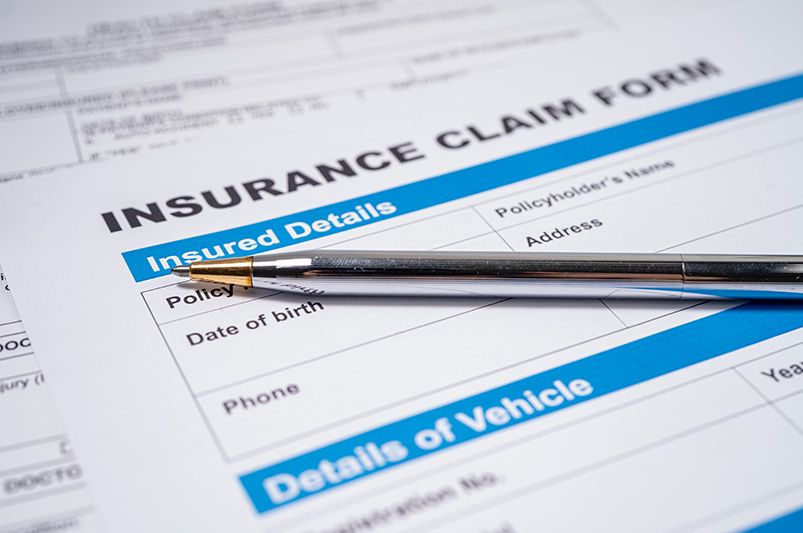Insurance Claim Denials: What to Do When Your Claim Is Rejected in California
Published: 09/10/2025 | Updated: 18/12/2025
Few things are as frustrating as discovering that your insurance claim—whether for an auto accident, property damage, or medical treatment—has been denied. After faithfully paying premiums, you expect your insurance company to be there when you need them most. Unfortunately, claim denials are common in California, and insurers often rely on complex rules and technicalities to avoid paying.
The good news? A denial doesn’t mean the end of your case. With the right steps, evidence, and legal support, you can appeal, challenge, or overturn a rejected claim and recover the benefits you’re entitled to.
Let’s break down why denials happen, how to interpret your denial letter, and what to do next to protect your rights under California law.
Understanding Why Insurance Claims Are Denied
Before you can fight back, it’s crucial to understand why your claim was rejected. Most denials fall into a few common categories:
1. Lack of Coverage
Your policy may not cover the specific type of loss you’re claiming. For example, flood damage might be excluded under a standard homeowners’ policy, or your car insurance may not cover rental reimbursement without an additional endorsement.
Next Step: Review your policy’s declarations page to confirm whether the incident falls within the covered terms.
2. Missed Deadlines
Insurance companies require claims to be filed within specific time limits—sometimes as short as 30 days. Missing a filing or documentation deadline can result in an automatic denial.
Next Step: Check the date of loss, compare it with the insurer’s required filing window, and see if any exceptions apply.
3. Insufficient Documentation
Incomplete paperwork or missing evidence—like police reports, repair estimates, or medical records—can lead to rejection.
Next Step: Request a detailed list of missing or “insufficient” documentation from your adjuster, and provide what’s needed as soon as possible.
4. Policy Exclusions
All policies include exclusions—circumstances under which coverage doesn’t apply. Common exclusions include intentional acts, pre-existing conditions, or wear and tear.
Next Step: Don’t take “exclusion” at face value. Some exclusions can be challenged if vague or ambiguous under California’s reasonable expectations doctrine.
5. Alleged Misrepresentation
If an insurer believes you provided false or incomplete information, they may deny your claim entirely.
Next Step: Gather proof of your statements and interactions. You can often refute “misrepresentation” claims with documented communication or receipts.
Step 1: Carefully Review Your Denial Letter
Your denial letter is your roadmap for appeal. By law, California insurers must explain the specific reasons for denial and cite the policy language or evidence they relied on.
Take note of:
-
The denial code or policy clause cited
-
The evidence or lack thereof that led to rejection
-
The deadline for filing an appeal or dispute
Pro Tip: Don’t throw the letter away in frustration—highlight each key section and keep copies. If you hire an attorney, they’ll use this as the foundation of your appeal.
Step 2: Gather and Organize Evidence
You’ll need to back your claim with detailed documentation. Strong evidence can change an adjuster’s mind—or strengthen your case if you escalate.
Recommended documentation includes:
-
Photos or videos of the damage or incident
-
Police or accident reports
-
Medical records and treatment notes
-
Repair estimates or receipts
-
Copies of all correspondence with your insurer
Create a folder (digital or physical) to store all materials by date. Keeping everything organized can speed up review and improve your appeal’s credibility.
Step 3: Contact Your Insurance Adjuster
Before escalating, it’s often worth having a direct conversation with your adjuster. Ask for:
-
A clear explanation of why your claim was denied
-
The specific documentation or information needed for reconsideration
-
Clarification on your right to appeal or request a second review
Stay calm, professional, and document every interaction—including the adjuster’s name, contact info, and date of the conversation.
JusticeGuys Insight: Sometimes a denial is simply due to missing or misfiled paperwork. A clear, polite follow-up can get your claim back on track faster than a formal dispute.
Step 4: File a Formal Appeal
If informal resolution doesn’t work, California law gives you the right to appeal the decision. Each insurer has its own process, but most follow these steps:
-
Submit a written appeal within the deadline listed in your denial letter.
-
Attach supporting documents (photos, receipts, expert opinions).
-
Cite your policy number and reference the section of your policy that supports your claim.
-
Explain why the denial is incorrect based on evidence or policy language.
Keep copies of everything you send. If your insurer continues to delay or deny your appeal without valid cause, this may constitute bad faith, opening the door to further legal remedies.
Step 5: Escalate to the California Department of Insurance (CDI)
If your insurer refuses to reconsider, you can file a complaint with the California Department of Insurance (CDI).
You’ll need:
-
A copy of your denial letter
-
Supporting documents
-
A written explanation of why you believe the denial was improper
The CDI will review your complaint and contact the insurer directly for a response. While this doesn’t guarantee payment, it often triggers faster action from insurers looking to avoid regulatory scrutiny.
File online: Escalate to the California Department of Insurance (CDI)
Step 6: Consult a Lawyer Experienced in Insurance Denials
If your insurer continues to delay, underpay, or deny your claim, it’s time to speak with an attorney who handles insurance bad faith cases.
California law protects policyholders against unfair practices, including:
-
Failing to investigate claims properly
-
Misrepresenting policy terms
-
Delaying payment without valid reason
-
Denying valid claims without proper evidence
A lawyer can:
-
Review your policy and correspondence
-
Identify violations of California’s Insurance Code
-
Negotiate directly with your insurer
-
File a lawsuit for compensation, damages, or interest owed
JusticeGuys Tip: You don’t need to face your insurer alone. Many attorneys handle these cases on a contingency basis, meaning you pay nothing unless they recover money for you.
Key Takeaways
-
A denial letter is not final—it’s a starting point.
-
Always respond in writing and within deadlines.
-
Maintain a paper trail of every email, call, and document.
-
Seek help early if you suspect unfair treatment.
California law gives you leverage—but only if you use it strategically.
CTA: Don’t Let a Denied Claim Go Unchallenged
At JusticeGuys, we help Californians fight unfair insurance denials with confidence. Whether your claim involves auto, health, disability, or property damage, our legal team can guide you through appeals, negotiations, and—if needed—litigation.
You paid for protection. You deserve results.
Schedule a Free Case Evaluation
We’ll review your denial, explain your rights, and help you take the next step toward recovery.
Downloadable PDF
Your California Insurance Claim Denial Survival Guide
Turn a Denied Claim into a Winning Appeal
Download JusticeGuys’ free guide to learn how to respond to insurance denials with confidence. Discover your rights, step-by-step appeal strategies, and expert advice on when to escalate your claim to the California Department of Insurance or seek legal action.
5 FAQs About Insurance Claim Denials in California
1. Why was my insurance claim denied?
Common reasons include lack of coverage, missed deadlines, incomplete documentation, or policy exclusions. Always review your denial letter for specifics.
2. Can I appeal a denied insurance claim?
Yes. Every California insurer must provide an internal appeal process. You can also escalate to the California Department of Insurance if the appeal fails.
3. What if the insurance company acted in bad faith?
You can file a civil lawsuit seeking compensation for damages and emotional distress. JusticeGuys helps clients pursue these claims.
4. How long do I have to appeal my denial?
Typically 30–60 days from the denial date, depending on your policy. Always confirm the exact timeframe listed in your denial letter.
5. Should I hire a lawyer for a denied claim?
If your insurer continues to delay, deny, or underpay your claim, consulting a lawyer can make the difference between ongoing frustration and a successful recovery.


